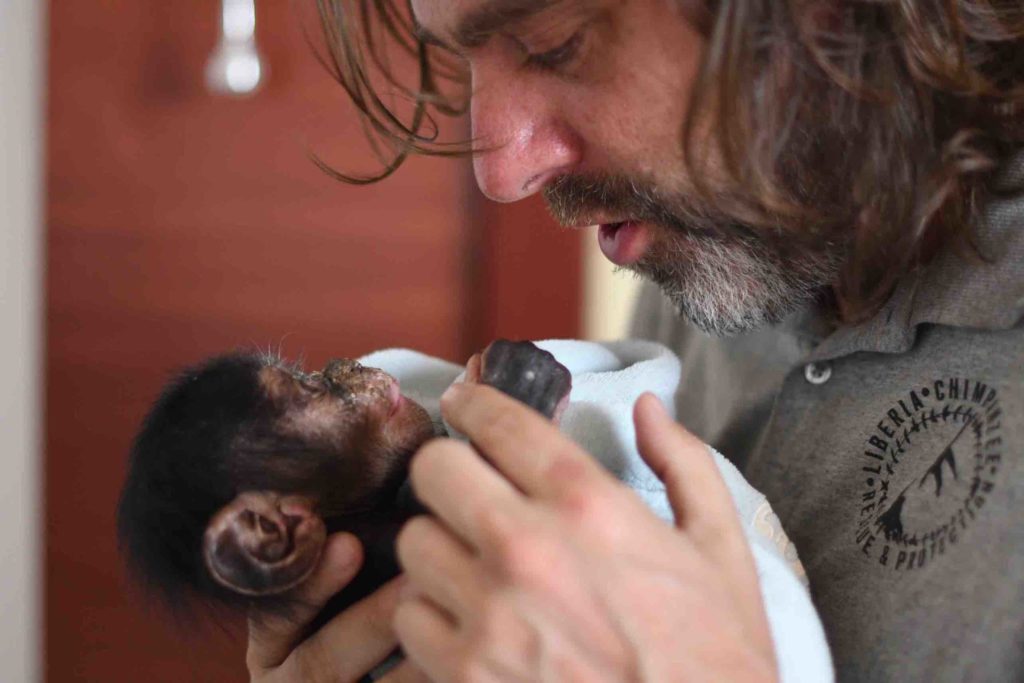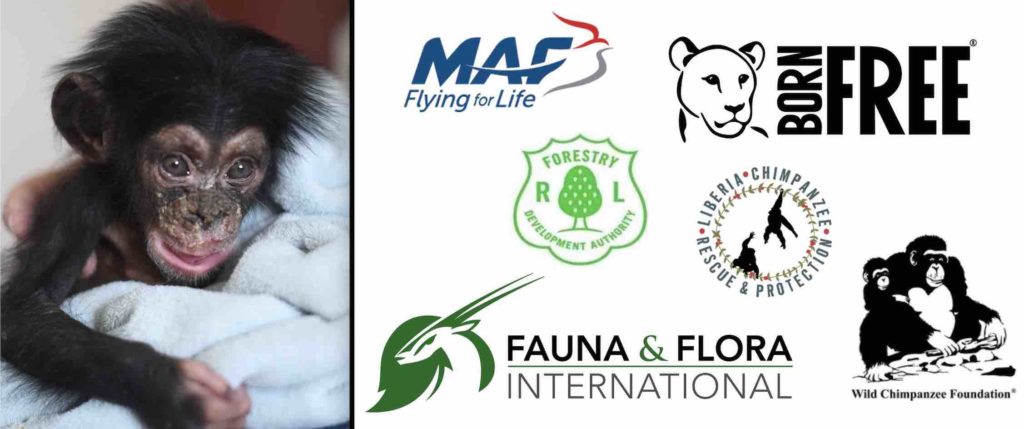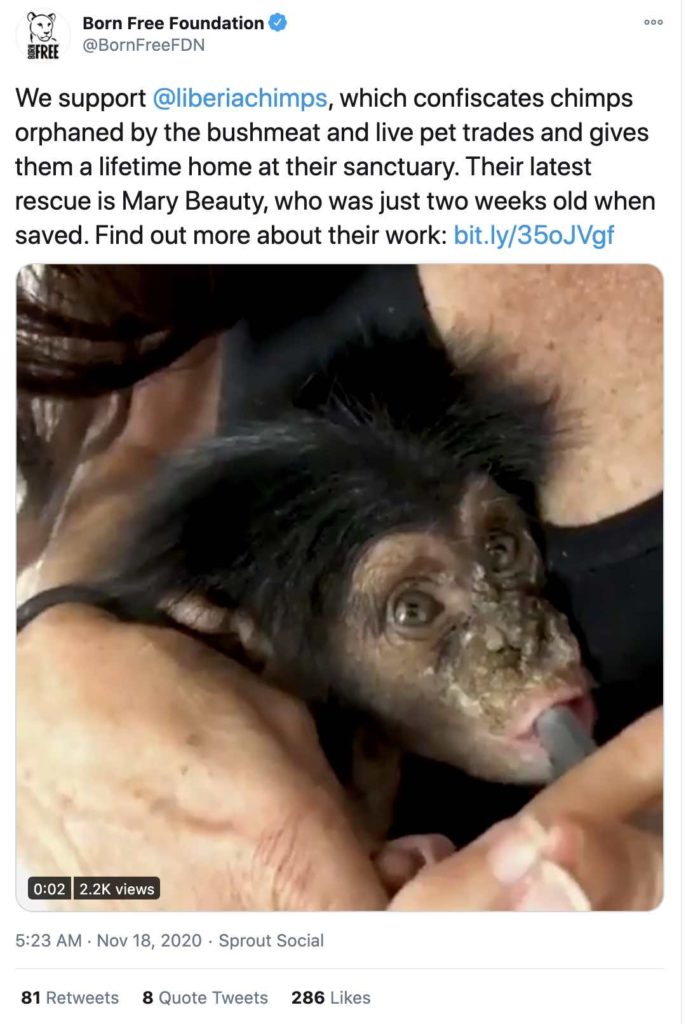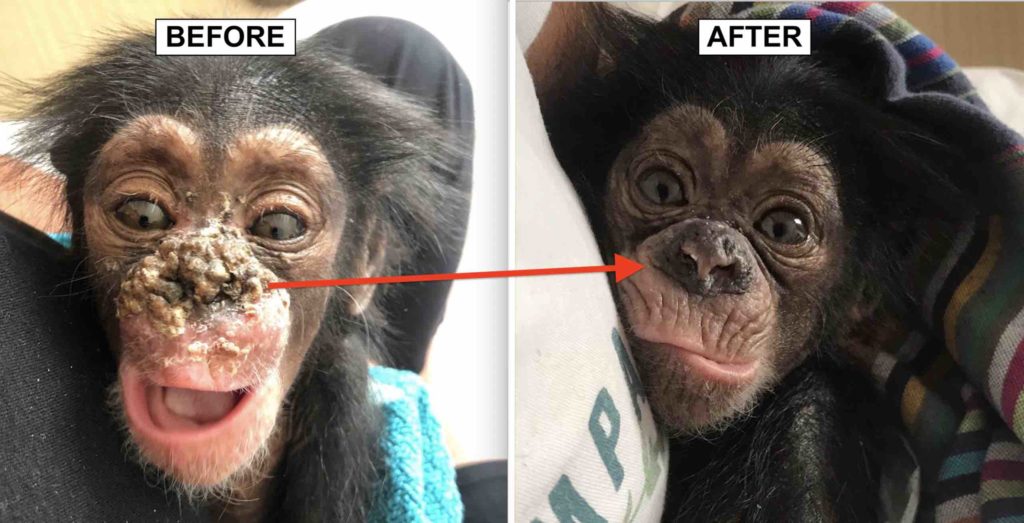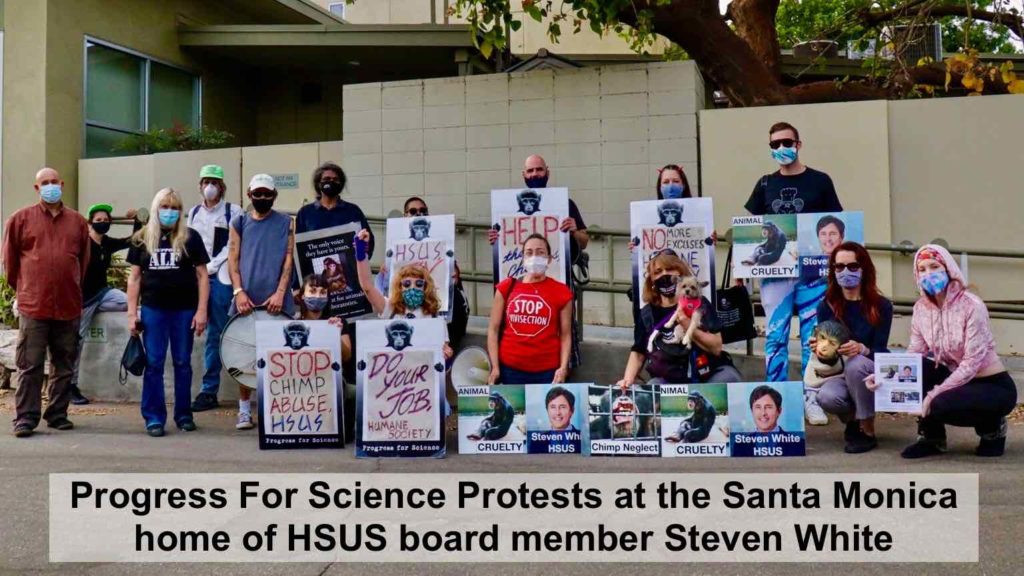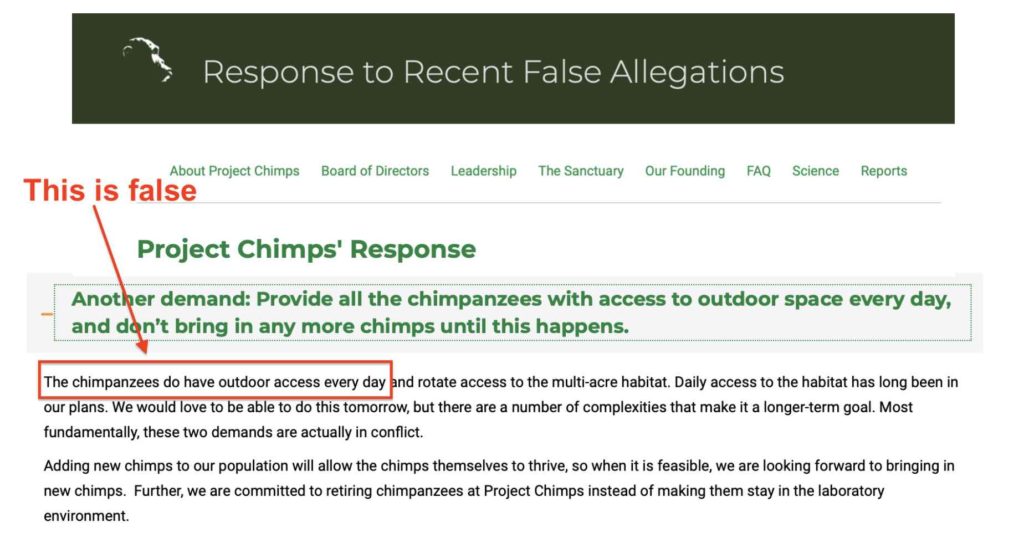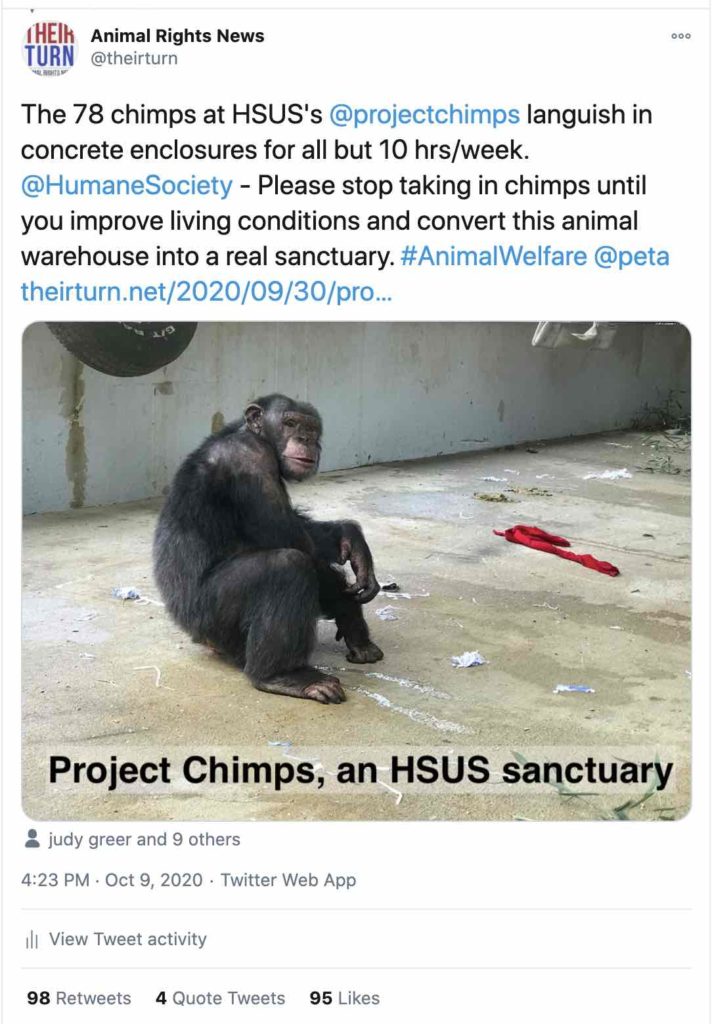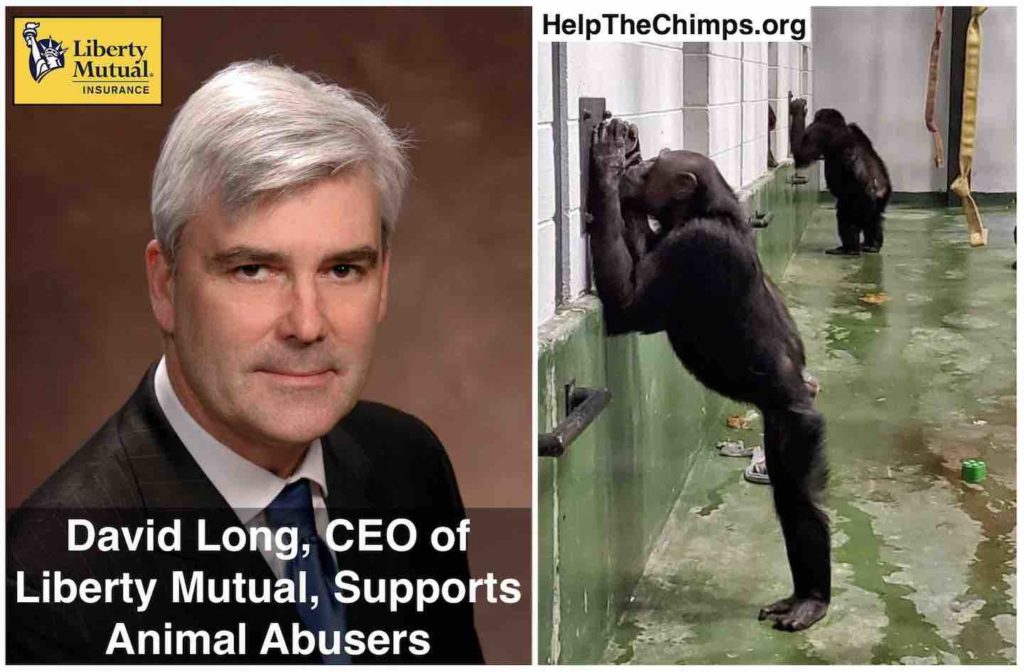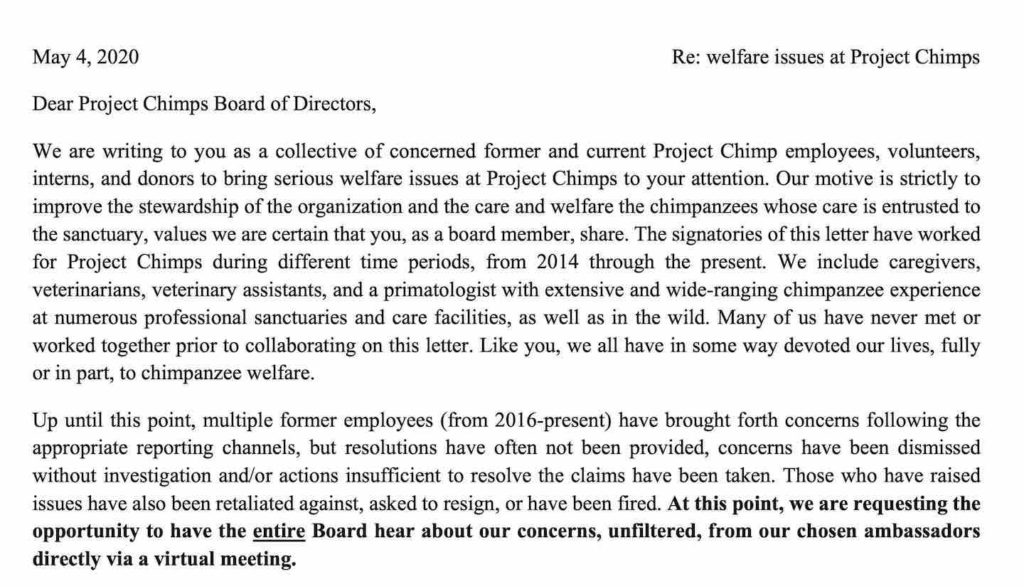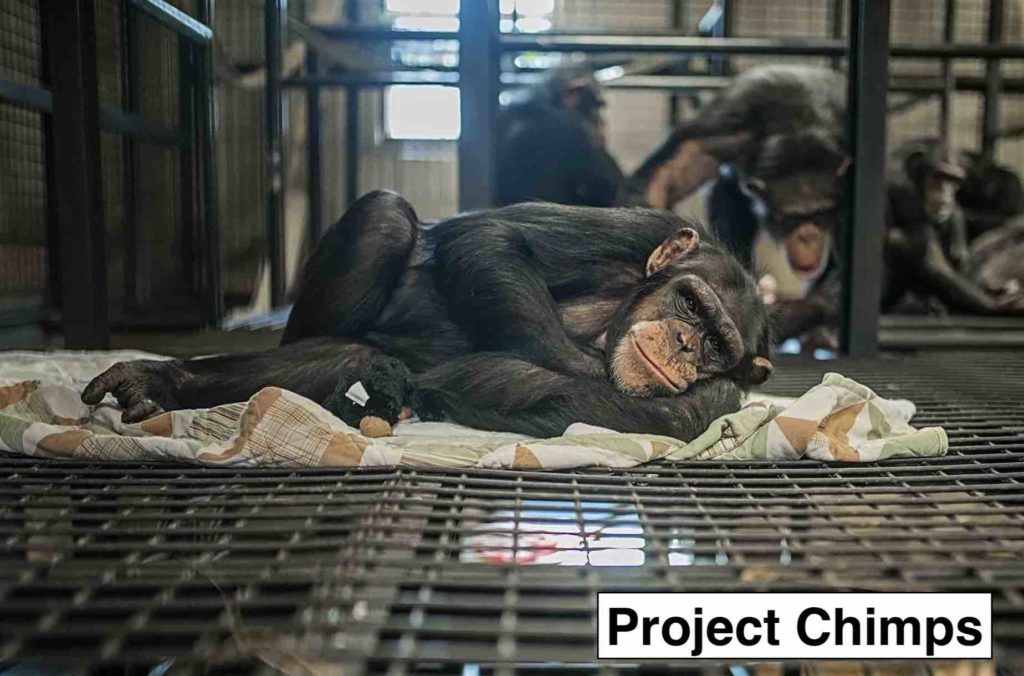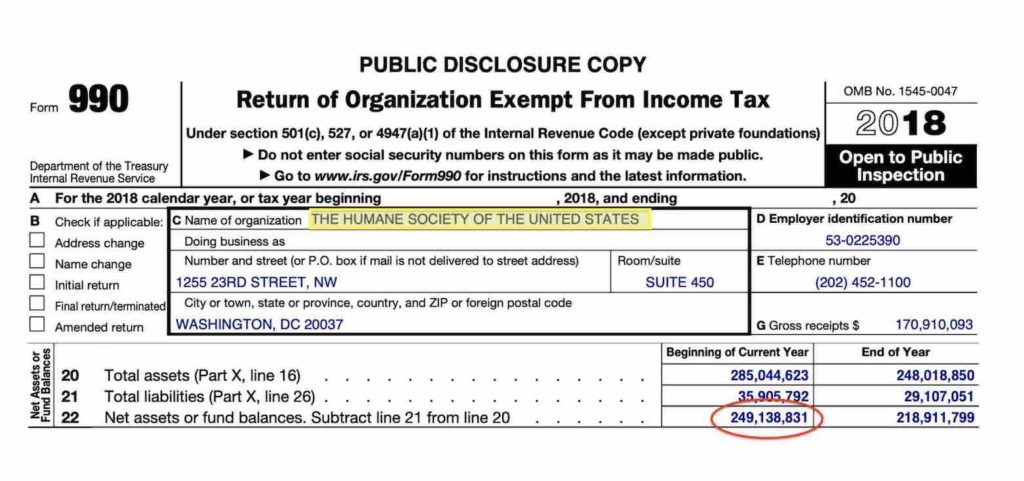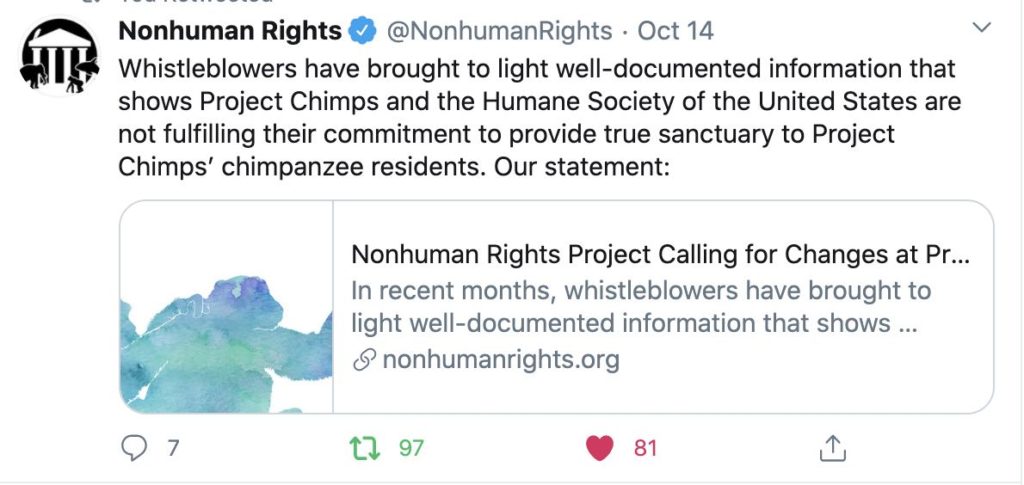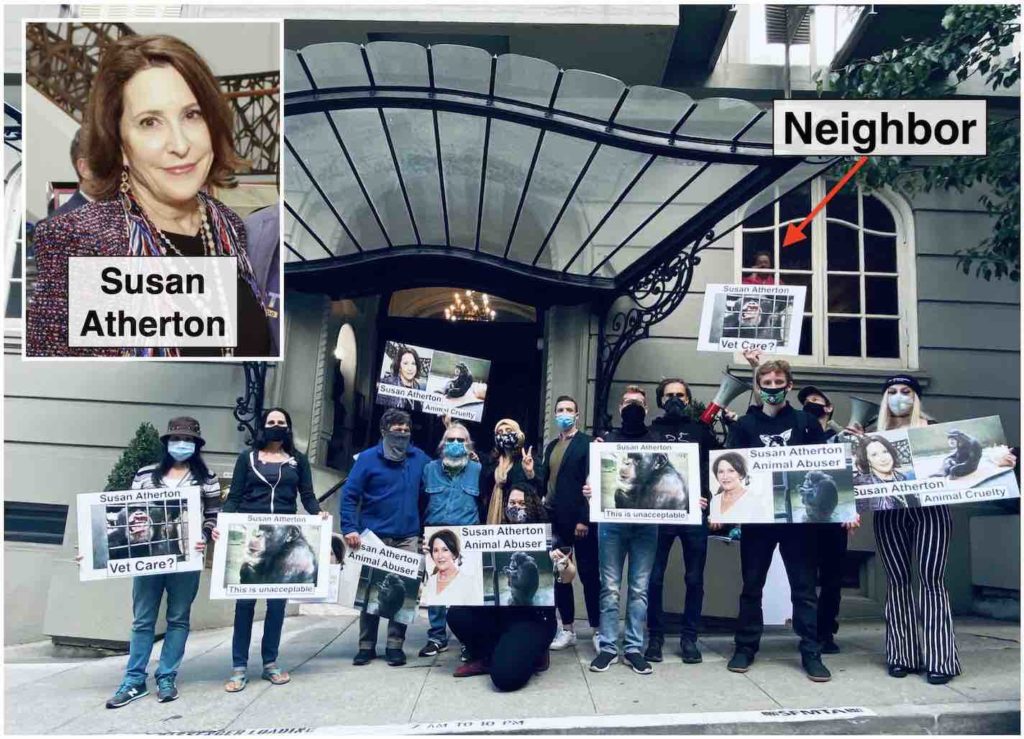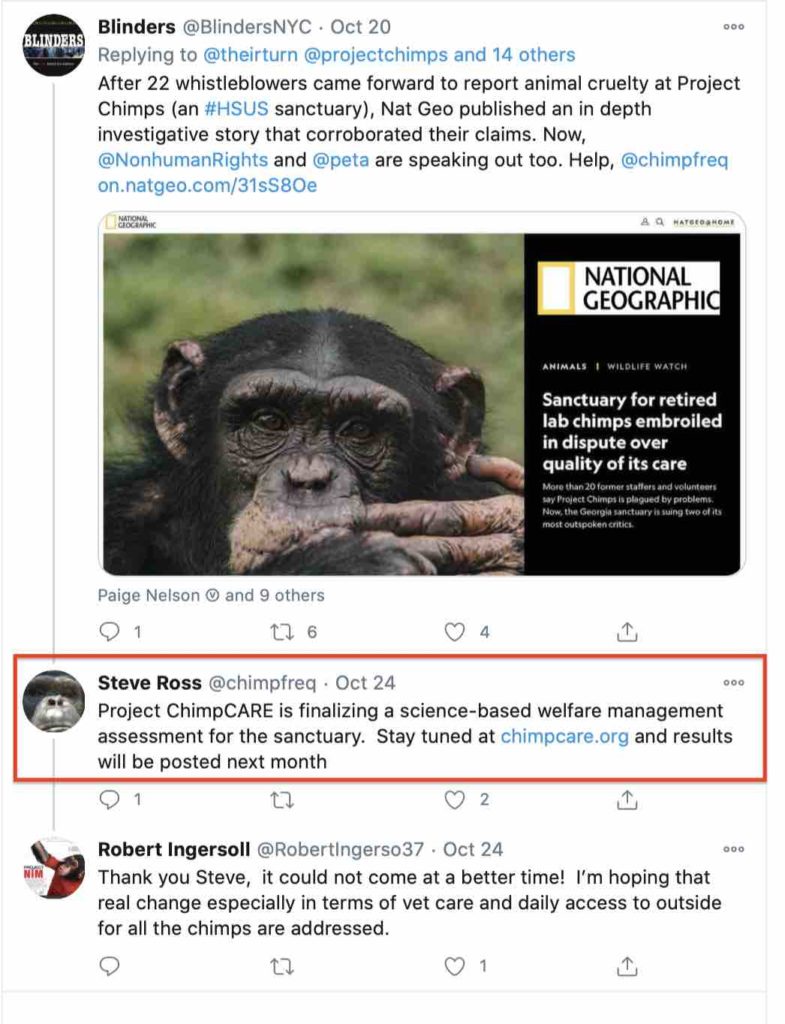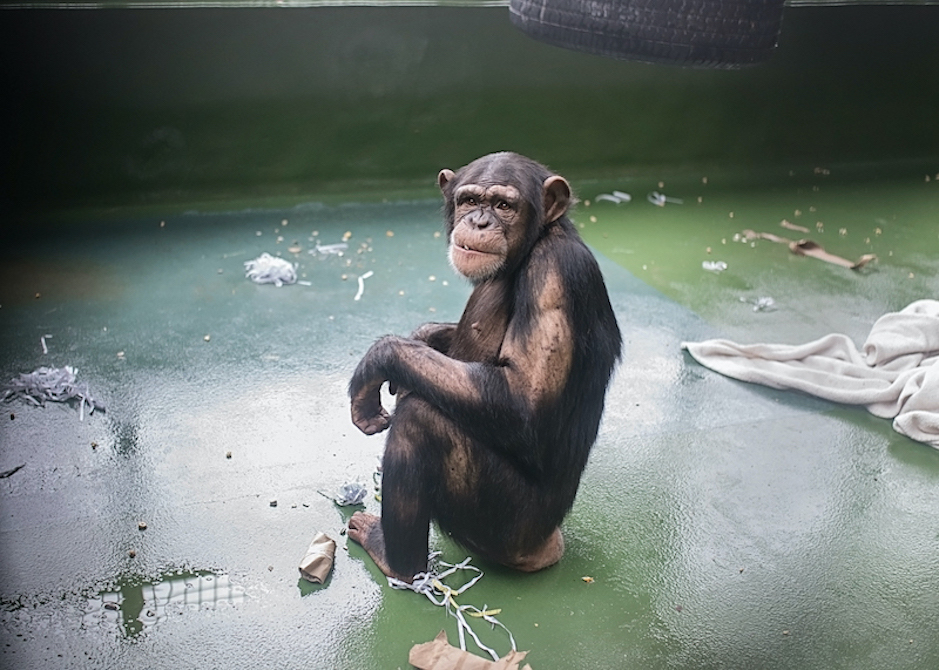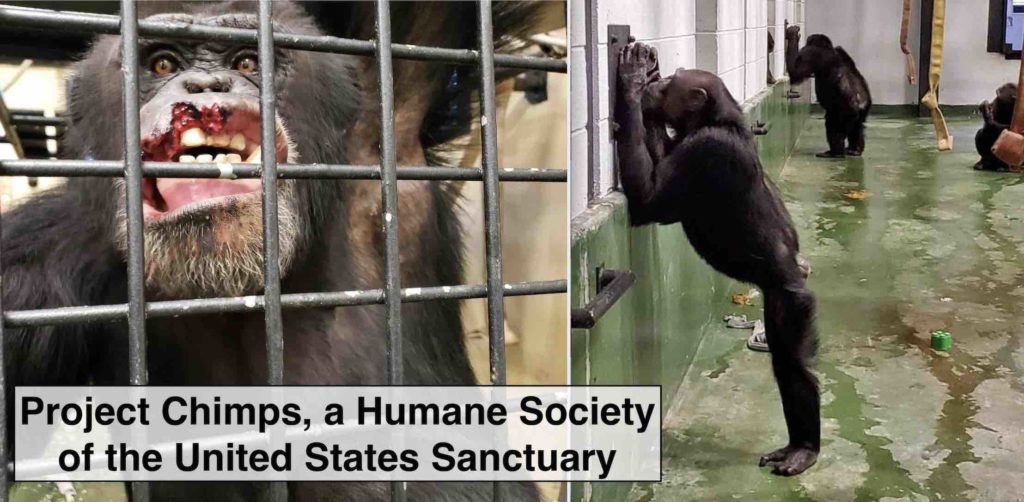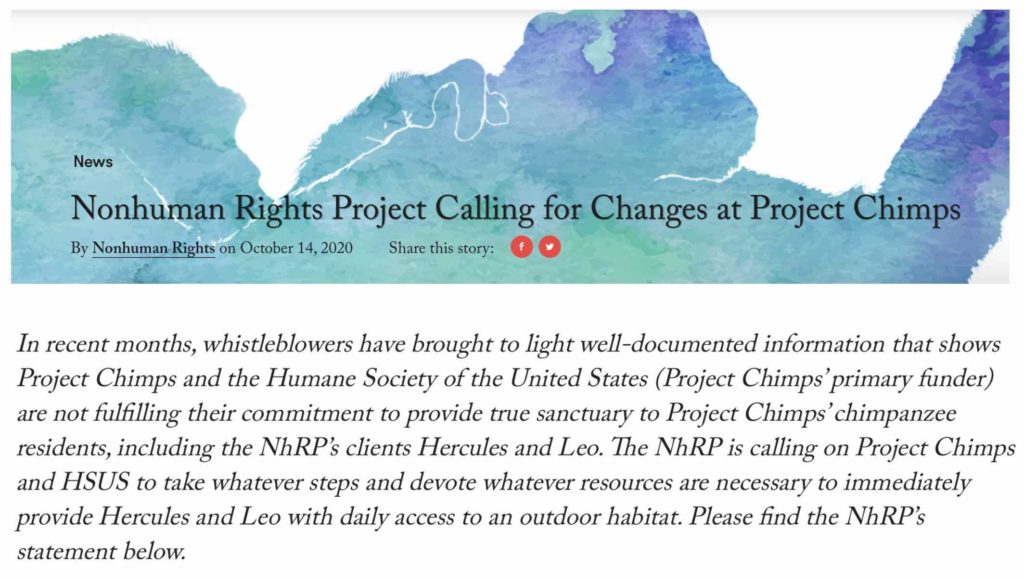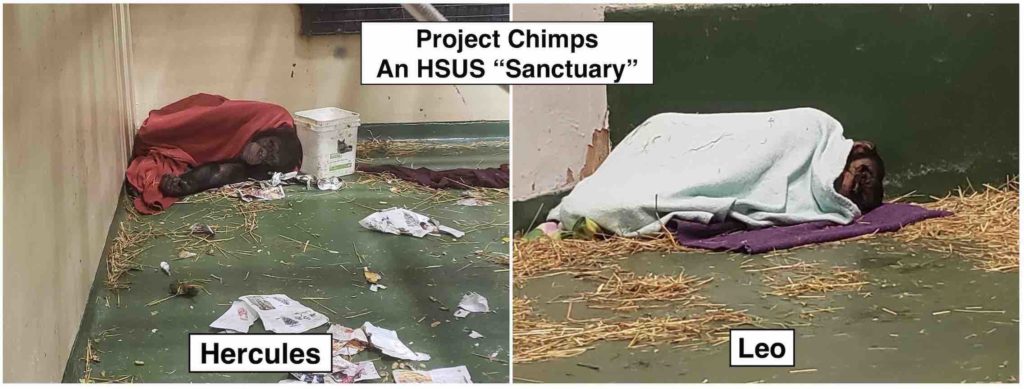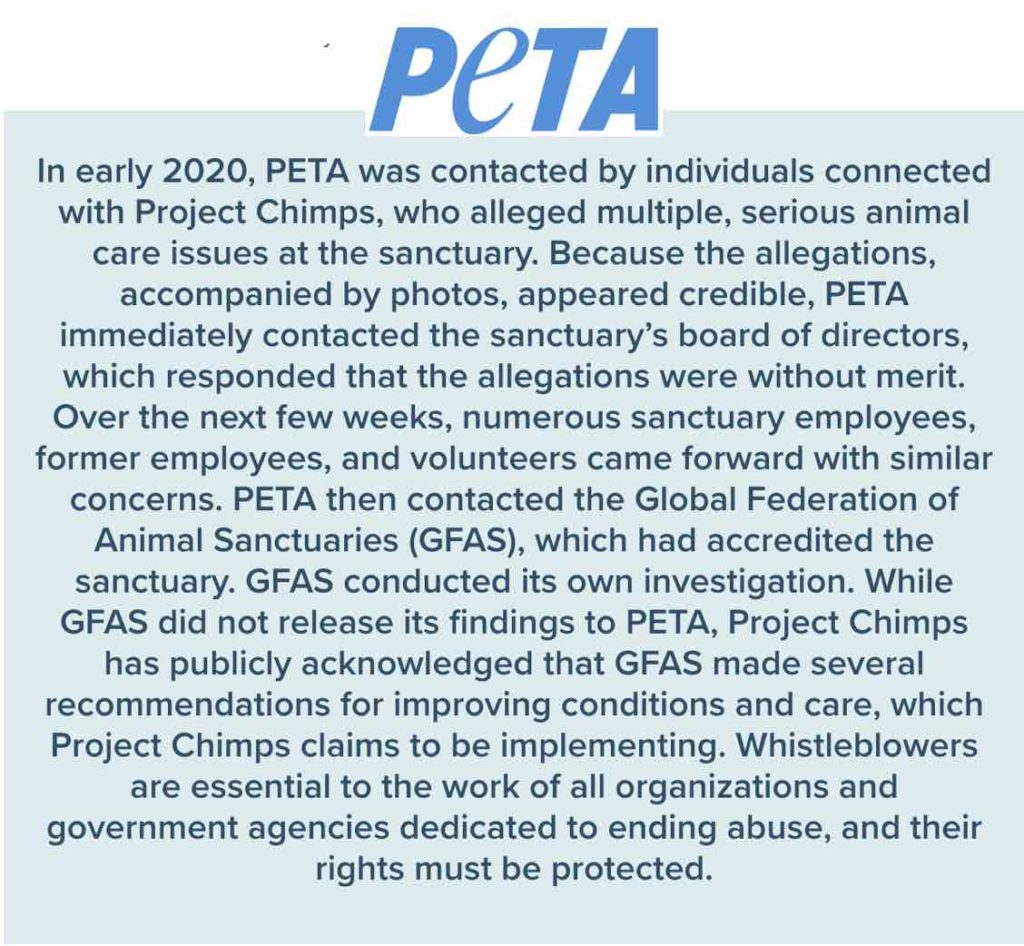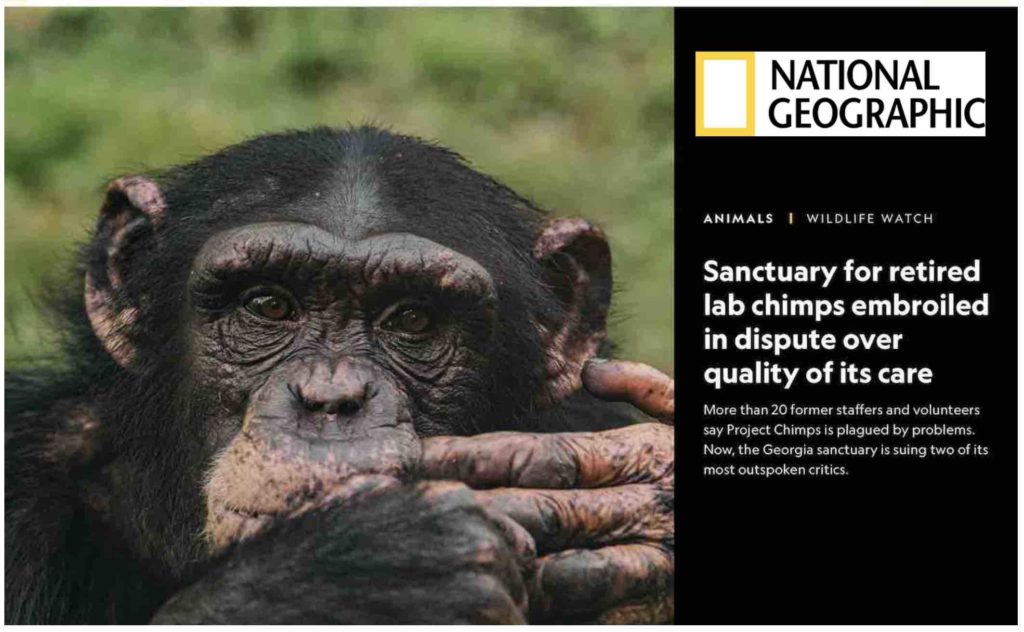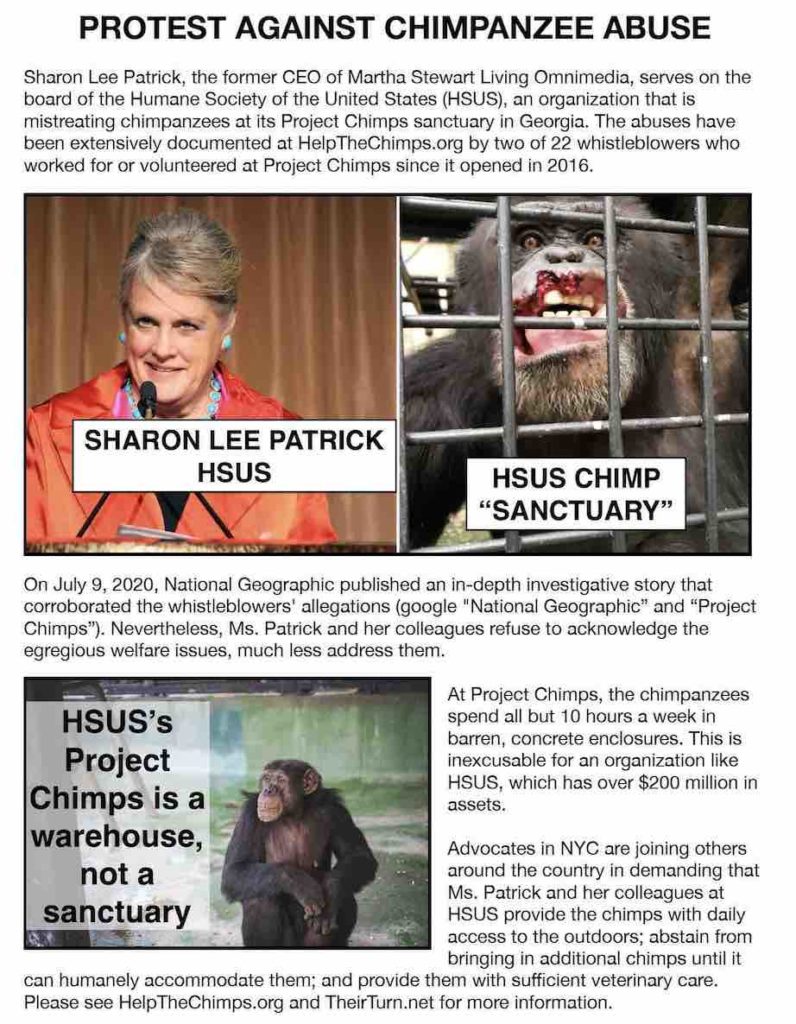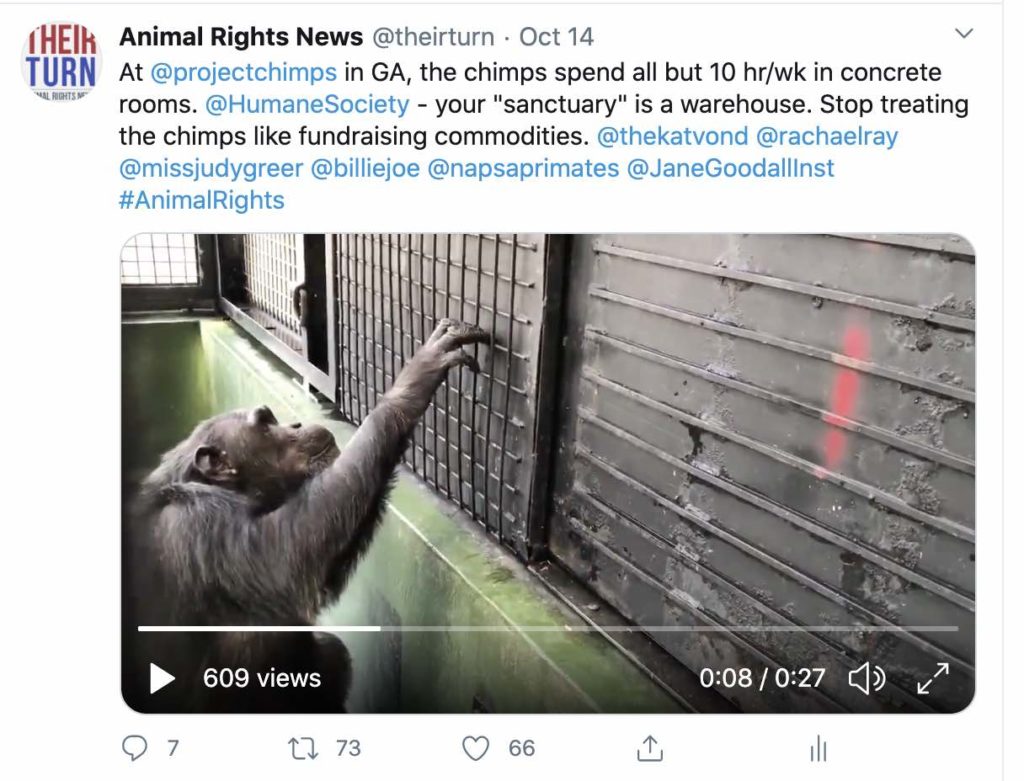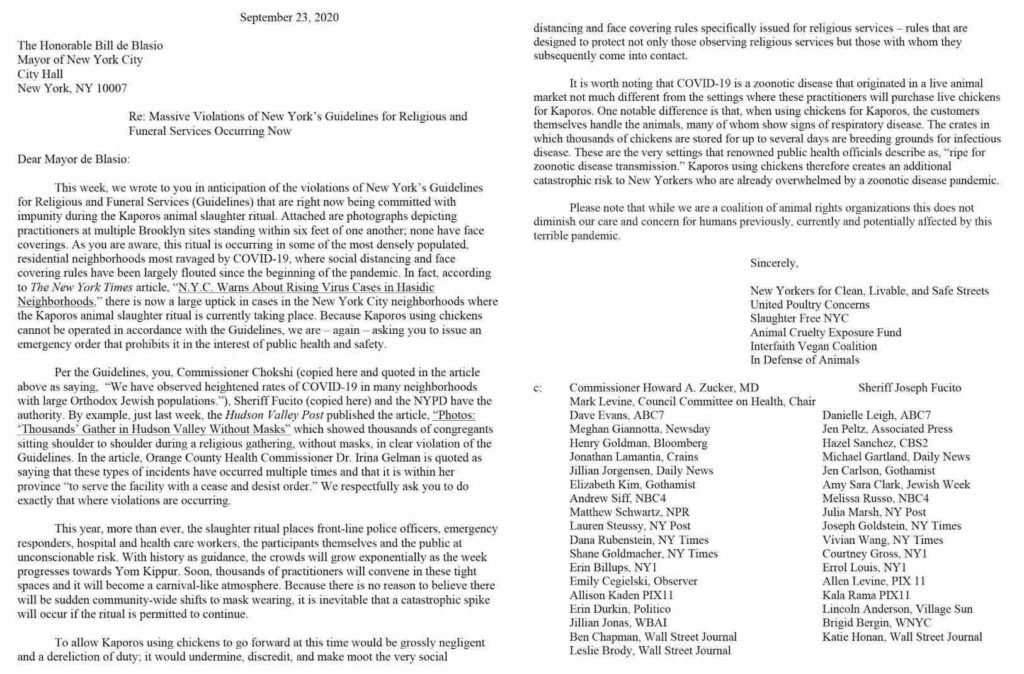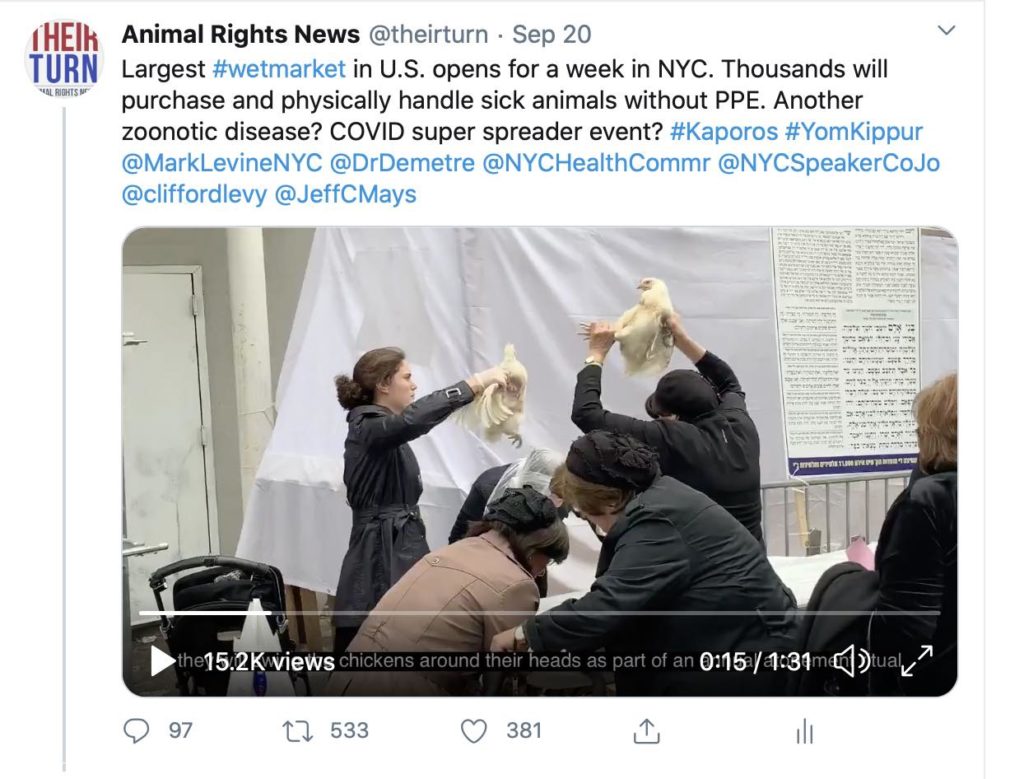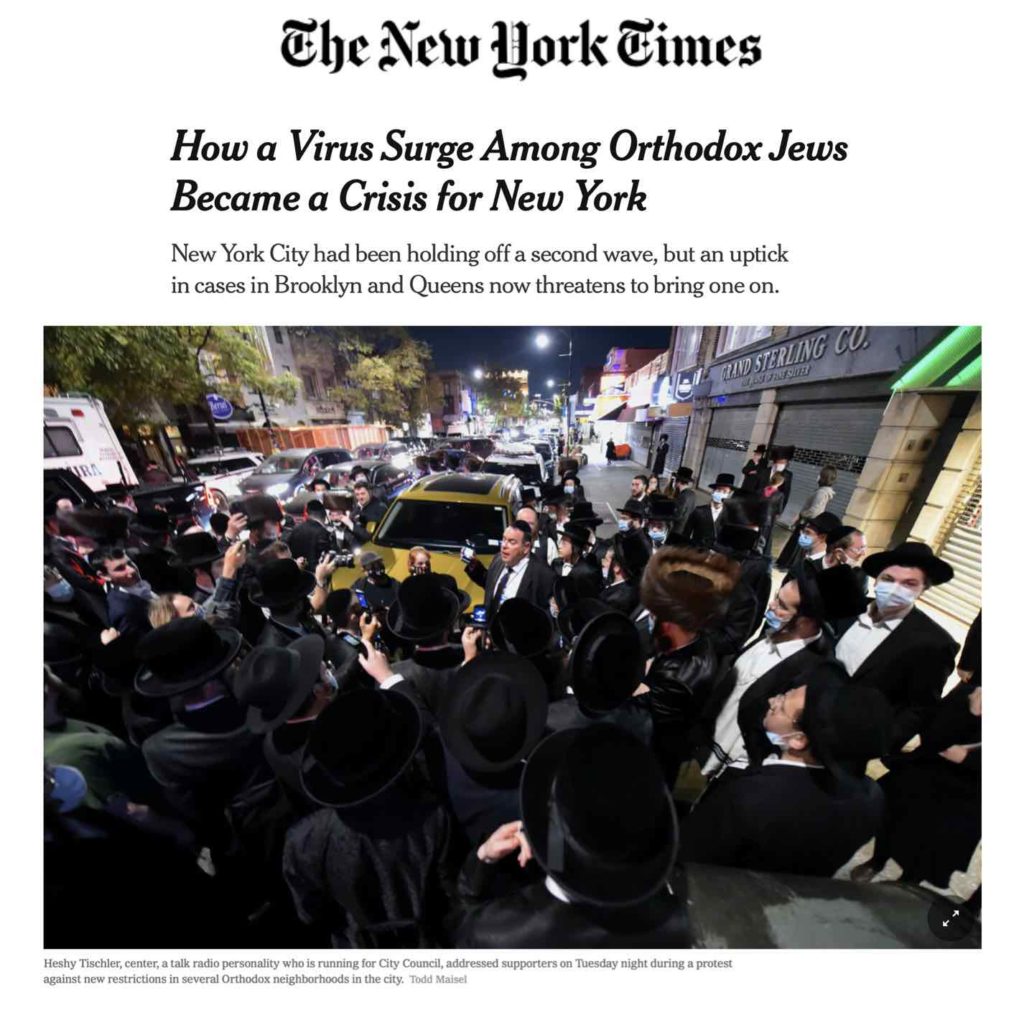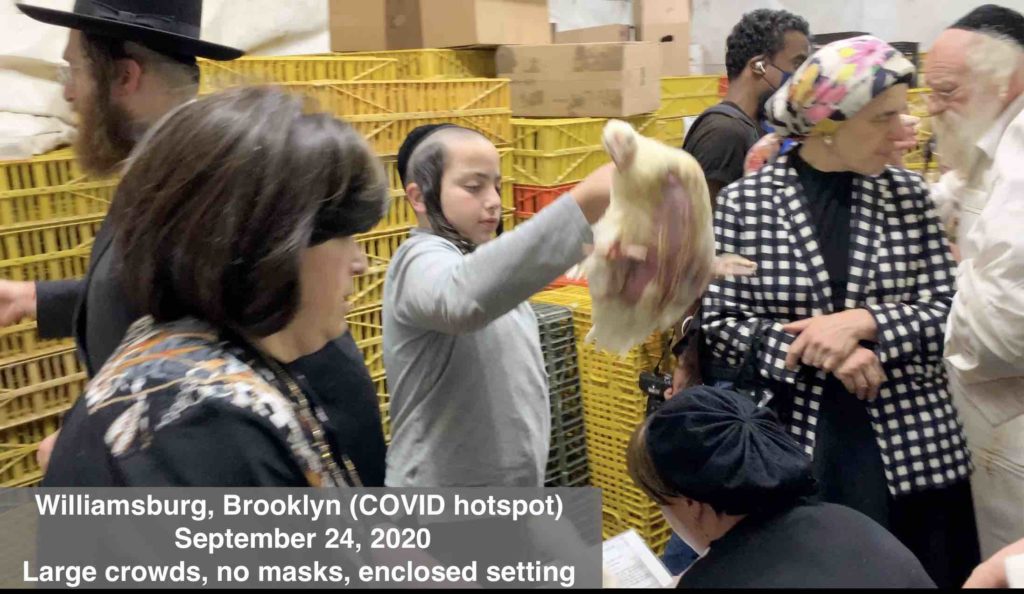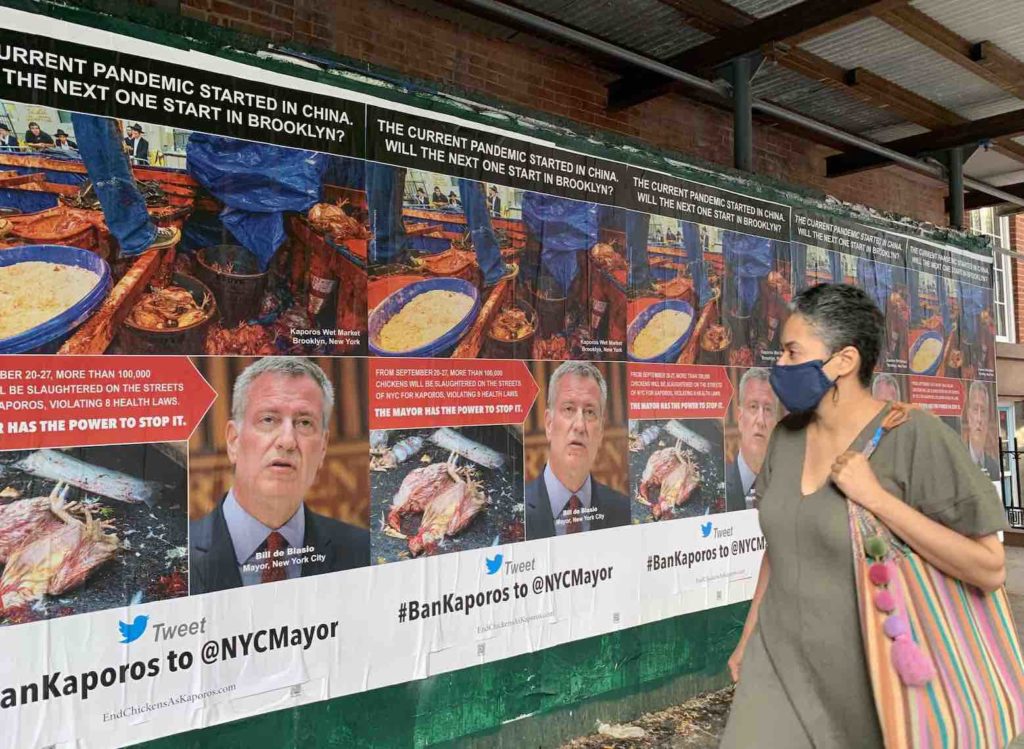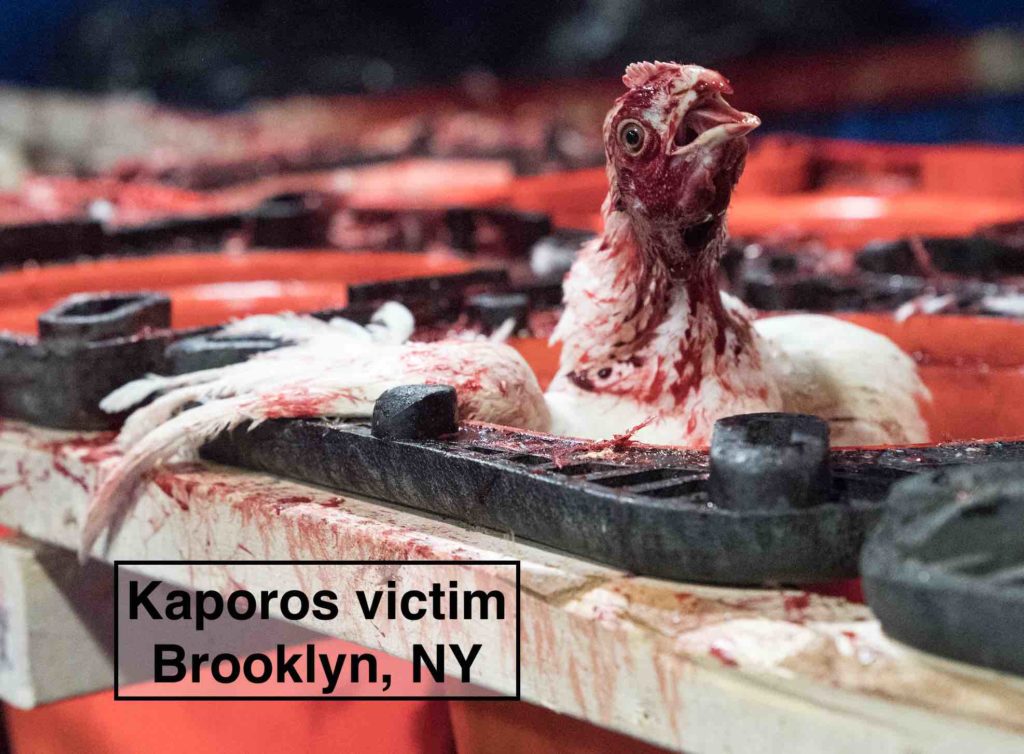Newborn Chimp Orphan Rescued By Air
The News
In early November, 2020, a female chimpanzee was born in Sapo National Park, a Liberian rainforest that is home to between 500 – 1,600 wild chimpanzees. One week later, poachers shot her mother. The newborn, who fell out of the tree with her mother, watched helplessly as a poacher ran off with her mother’s body.
A park ranger with Liberia’s Forestry Development Authority (FDA) heard the gunshots, ran to the scene of the crime and confiscated the infant from one of the poachers. Because he was alone, the FDA ranger could not simultaneously detain the poacher and save the injured infant. After calling for reinforcements, the ranger wrapped the newborn in a blanket and transported her by moped to the Greenville office of Fauna & Flora International (FFI), a global conservation group. Upon her arrival, the newly orphaned chimp was barely clinging to life.

A ranger with Liberia’s Forestry Development Authority (FDA) confiscates a newborn chimp from poachers and transports her to Flora & Fauna International
FFI contacted Jenny Desmond and Dr. Jim Desmond, who run Liberia Chimpanzee Rescue & Protection, a sanctuary and conservation organization near Monrovia, Liberia’s capital. The Desmonds, who have 63 orphaned chimps in their care, were well equipped to rescue the chimpanzee, now named Mary, but they couldn’t get to her. During rainy season, the road between Greenville and Monrovia is often unnavigable. As LCRP looked for a solution, the Desmonds coached FFI staffers on how to care for the fragile orphan.
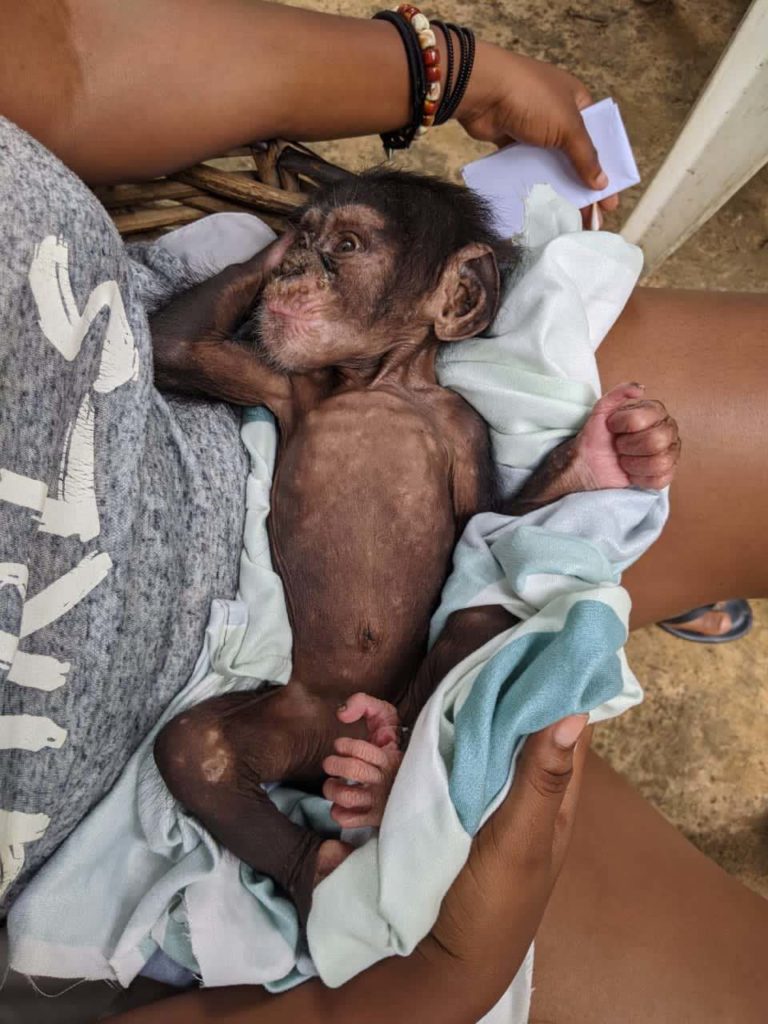
The staff at the Greenville, LIberia, office of Flora & Fauna International cared for Mary for a week before Jenny Desmond from LCRP could rescue her
Upon learning about the plight of Mary, the Wild Chimpanzee Foundation (WCF), another NGO with a presence in Liberia, contacted Mission Aviation Fellowship (MAF), a Christian charity that provides air travel to local NGOs, to ask if they would fly Jenny to Greenville to retrieve Mary and then fly the two of them back to Monrovia. MAF agreed.
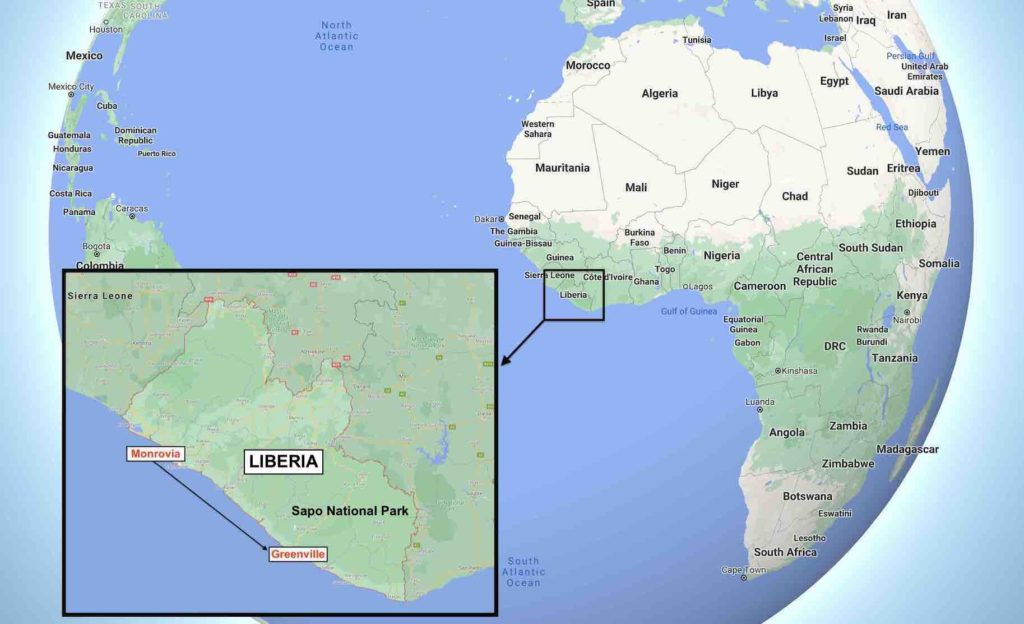
Mission Aviation Fellowship flew Jenny Desmond of Liberia Chimpanzee Rescue and Protection from Monrovia, Liberia, to Greenville to rescue an infant chimp orphaned by poachers
One week later, Jenny boarded an MAF prop plane to Greenville.
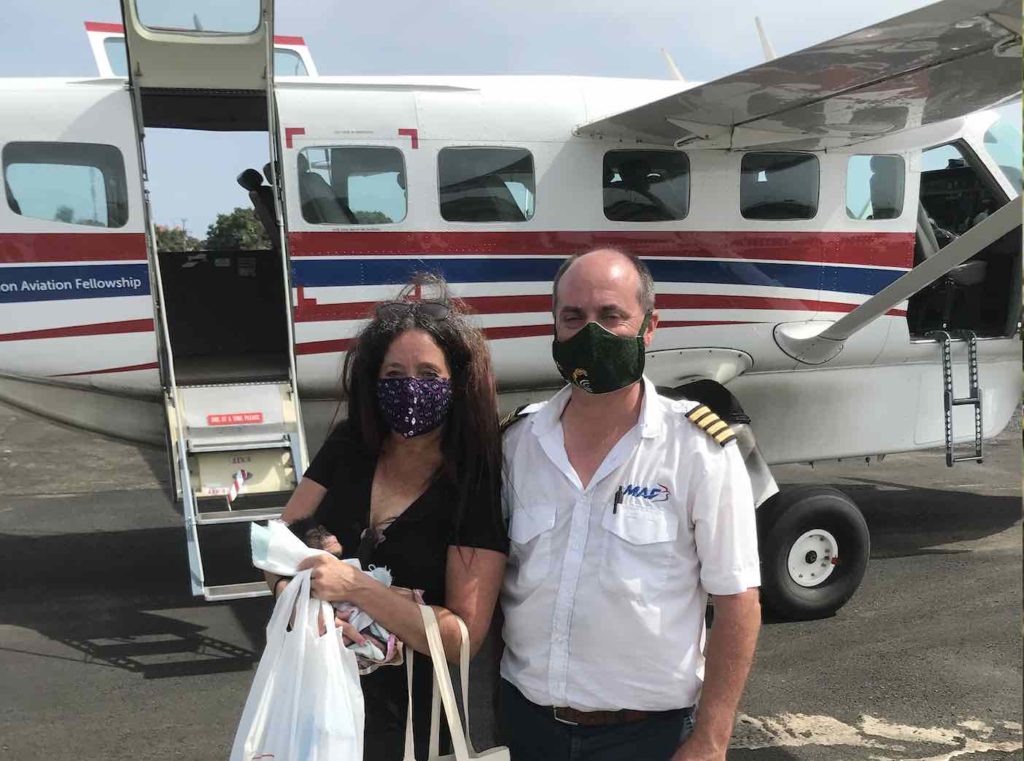
Andrew Mumford, a pilot with Mission Aviation Fellowship, flew Jenny Desmond of LCRP from Monrovia to Greenville to rescue an infant chimpanzee whose mother was killed by poachers
According to Jenny, Mary is the “youngest, most fragile” chimp she has rescued since arriving in Liberia in 2015. She didn’t know if she and her husband Jim, who is a veterinarian, could save her life, but they were – and still are – determined. In the two weeks since Jenny arrived at FFI’s office in Greenville, Mary has been clinging to her for 24 hours a day, as baby chimps do in the first year of their lives.
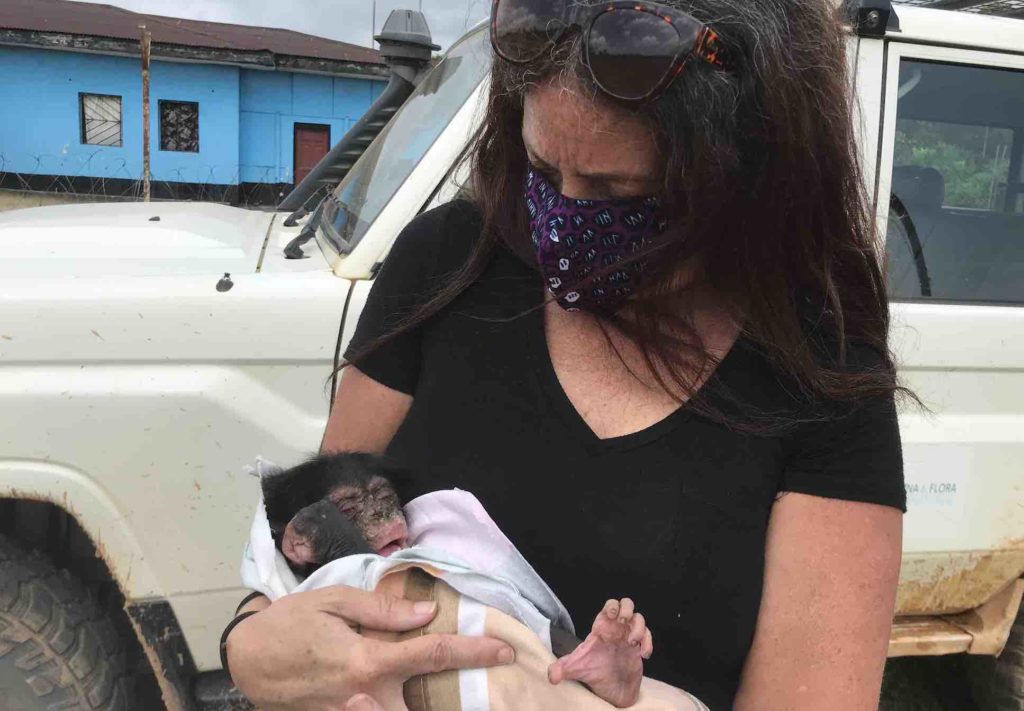
Jenny Desmond of Liberia Chimpanzee Rescue & Protection Rescues Mary, a two-week old chimp who the Liberian Forestry Development Authority confiscated from a poacher
Mary is recovering from the physical injuries she sustained from falling out of the tree, but she is not out of the woods. She could die from the emotional trauma she is experiencing – having watched her mother get killed. She is also fighting a cold, which can be deadly for an infant chimpanzee. Dr. Desmond has put her on a course of antibiotics. If and when Mary recovers, the Desmonds will introduce her to other chimpanzee toddlers at LCRP to begin her socialization, and they will bring her to the 100 acre forest where they are building a new sanctuary from the ground up. The Desmonds will keep the public updated on Mary’s progress on LCRP’s Facebook page.
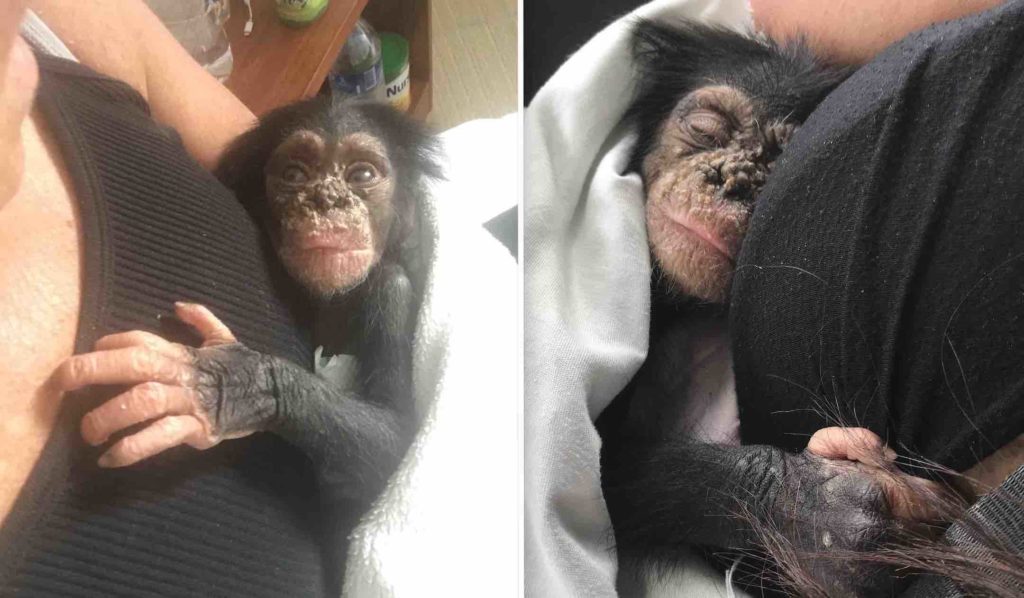
Mary, an orphaned chimp, clings to her surrogate human mother, Jenny Desmond of Liberia Chimpanzee Rescue & Protection (LCRP)
Killing wild chimpanzees is illegal in Liberia, and, with the help of Liberia’s Wildlife Crime Task Force, the Forestry Development Authority is working to apprehend the poacher(s) who killed Mary’s mother. Among FDA’s many avenues of investigation are interviewing villagers around the national forest and searching for chimp meat and/or live chimps in Liberia’s outdoor markets and border crossings.
Mary’s rescue was made possible in part by the Born Free Foundation. In October, Born Free awarded LCRP with a McKenna Travers Award, which consists of emergency funding for the rescue of wild animal orphans. Mary is the first beneficiary at LCRP of the McKenna Travers Award.
After three weeks, the scab that formed from the injury that Mary sustained on her face fell off. Mary will spend 24 hours a day with a surrogate human mother until she is confident enough to be transitioned into a toddler group at LCRP, where she will spend the rest of her life.
LCRP’s rescue and conservation work will be profiled in a three part TV series called Baby Chimp Rescue that was produced by the BBC. The series airs in the United States on BBC America starting on December 5th.





